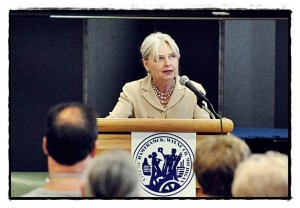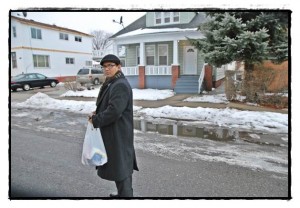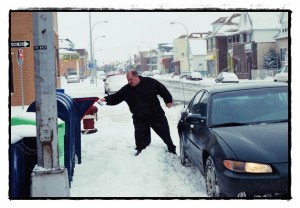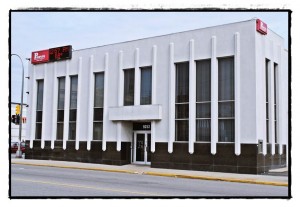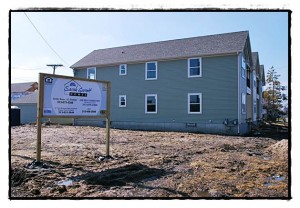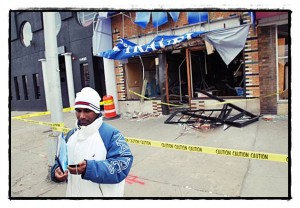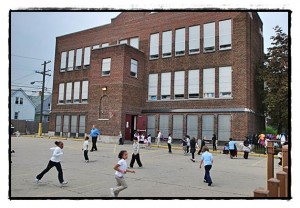The year in review: 2011 was like no other
By Charles Sercombe, Alan Madeleine and Ian Perrotta
Once again, it’s time for our annual look back over the year. In this installment, we take a trip through the first six months of the 2011. Enjoy!
JANUARY
The first month of the New Year started off all business-like.
City Councilmember Kazi Miah (remember him?) called for a town hall meeting to inform the community of two possibilities to deal with the city’s financial woes: Apply for a state loan or file for bankruptcy.
Whoa!
The public came out in droves, and were they ever vocal about what direction they want the city to take.
Wanna guess it wasn’t to file for bankruptcy?
Here’s what the public had to say:
“I’m not willing to pay any more taxes.” – Former City Councilmember Dr. Abdul Algazali, as he denounced the council, and he accused them of not making necessary cuts and not saving money for a rainy day.
“These are the people who run the city. You work for us.” – Bill Meyer, Executive Director of the group OneHamtramck LLC, to the council, as he motioned to those sitting in the audience.
“When I heard the request to skirt state law and request bankruptcy instead of first suggesting an emergency financial manager, honestly, I thought it was really arrogant and I was surprised and upset about that.” – A still-visibly upset Eric Burkman, community activist, as he denounced the policies of those in charge.
“The city of Hamtramck has not had a sprinkler system for about 100 years until now, and now you want us to pay more taxes?” – Former City Councilmember Kathy Kristy, on ways that the city has apparently misused discretionary money.
“I’ve recorded lots and lots of code violations to you and you’ve ignored me. You stopped returning my e-mails and I think you’re liars and I don’t trust that you’re listening to any of us for anything.” —Ramsey Hussain, irate with the fact that he has invested his life savings in his house and the city has “crapped on it for the last five years” by allegedly failing to enforce building codes in other structures.
“We sued the city to protect the rights of the bad guys we had to lock up. There was no bathroom. There was no running water. I used to go to my locker at work and have to jump over a puddle of urine.” – Police Officer Walter Tripp, explaining the reasoning behind one of the department’s lawsuits against the city. He also noted that it was the department’s drug fund that purchased new sprinklers for City Hall.
“Mr. Cooper, you’ve done a disservice to our city by going out and telling the national media that we need to file for bankruptcy.” – Local resident Tim Hanks, on what he believes are the ramifications of Cooper’s letter to the state.
“I want to know why is our overpaid and undereducated lawyer James Allen not here?” – A soon-to-be corrected Tywla Meyer, who was quickly alerted by shouts from people in the crowd that the man in question was in the back of the gym.
“I come from a small farming community and now it’s one of the biggest tourist attractions. America doesn’t have a crossroads (a destination spot for international tourists) – what’s wrong with this city? We’ve got to attract people to our city. It’s unique. I think them two girls who ran the festival should get involved. I’ve never seen anything like it. They took that festival from nothing and put it on the map.” – A man who lives on St. Aubin, providing a suggestion for a way the city can bring in additional revenue.
“If you can survive the city of Hamtramck, this is the best boot camp for you to go out there and be successful and do anything you want to do.” – Taha Alhumdi, program director of the Hamtramck branch of the Arab American Chaldean Council (ACC), on what he tells people is one of the benefits Hamtramck has to offer.
“One of the things that concerns me about Hamtramck is that sometimes we set up adversarial relationships in how we work with each other. The places I see turnarounds happen are places where historic enemies realize they have to work together and become allies instead of attacking each other.” – Rev. Dan Buttry, on ways that Hamtramck can work toward improving not only the city’s finances but the relationship between the government and residents.
As it turned out, a bare majority on the council rejected applying for a $2.5 million loan. As you might imagine, the city’s finances remained in the spotlight in the months to come.
While locals were all up in arms about the city’s future, Mayor Karen Majewski was fending off more ominous inquiries. State officials from the Treasury Department, as well as the Detroit Free Press editorial board,were asking her: Is there any reason why Hamtramck should continue to exist as an independent city?
“How do you answer that?” said Majewski, who is known to be able to articulate a good sentence on the fly.
It wasn’t like a loss for words for the mayor, but a reaction to how could anyone think that. For Hamtramckans, there are too many reasons to exist as a separate city. Our long and rich legacy, for one.
But to some, Hamtramck as a separate municipality doesn’t make sense. The unspoken thinking is why not merge Hamtramck – and presumably neighboring Highland Park, which is financially unstable – with Detroit?
It’s a concept that has been raised before – and feared by both city officials and residents. But, in the past, Hamtramck has always been able to pull out of its financial crises.
Every few years, it seems, a rumor floats around that Kowalski Sausage, the city’s oldest employer, is thinking about relocating out of town.
This time, however it was no mere rumor. The company was seriously thinking of purchasing a vacant Sam’s Club in Madison Heights and moving its operation there.
Just think about that: Goodbye glorious and iconic Kowalski neon sign!
City officials met with Kowalski but the company insisted it needed a bigger space to consolidate its operation
But, the deal fell through after Madison Heights officials declined to offer the company a tax incentive. Hamtramck officials, on the other hand, said they would work with state officials to come up with a development plan to help Kowalski relocate somewhere in town.
Flash forward to the end of the year, and we have no idea where this is heading. Kowalski officials have not returned phone calls for several years now. But hey, no sore feelings over here. You guys still make one of the best factory-produced sausages around.
Walking down the city’s streets became a little safer.
After the final installation of new traffic lights on Caniff was delayed for months due to a dispute between contractors, the gaping holes left in the wake of the disagreement were filled. However, the work wasn’t finished just yet.
Because of the winter weather, the dangerously large – and deep – holes were filled with a material called cold patch, which is an asphalt-like material that is used when temperatures are too low to allow concrete to dry.
When warmer weather returned, the holes were patched up with concrete.
For about the third time, the Detroit-based television drama “Detroit 1-8-7” set up cameras here in Hamtramck.
The production crew for the ABC show shot scenes at the Shadow Bar and during the night more scenes outside on Jos. Campau.
In previous shoots here, scenes were shot at Three Star Bar-B-Cue and at other locations along Jos. Campau.
It’s unclear if any Hamtramckans were picked to be extras. There was some spillover for Maria’s Comida Mex-Asian Fusion, which was right next-door to the action.
Actors Michael Imperioli and Jon Michael Hall ate dinner there, despite having access to free catered food. Co-owner Marie Pronko said they stayed for over an hour and talked with the staff, customers and even Mayor Karen Majewski who just happened to be there for a business meeting.
“They were a great group. We were thrilled,” Pronko said.
Pronko was especially, ah, thrilled about hunky, tough guy Michael Imperioli stopping by.
“I hoped I would get to see him. That was a real treat,” she said.
And in gossipy celebrity reporting tradition, here’s what Michael had to eat: the vegetarian quesadillas.
Huh? A vegetarian dish? Who knew?
Hall had the marinated chicken tacos.
Sadly, the TV series failed to attract a sizeable audience, and ABC went on to pull the plug.
Dang, just when we were ready for our close up.
The jury may still be out on how good of a councilmember Mohammed Hassan is, but if he were ever to become a bar owner, he would be awful.
Hamtramck police officers, responding to a break-in, met up with an upset Hassan who questioned why the officers took so long to respond.
He was told officers were tied up at the Shadow Bar because of a disturbance there.
Hassan’s response: “Let them die. Let them die.”
That statement was recorded by police officers.
We tried to get a comment from Hassan but instead, had a pretty weird encounter.
A Review reporter went to Hassan’s house at 3423 Neibel for a comment. No one answered the door, and the house appeared to be vacant, with advertising circulars stuffed into the fence and strewn on the walk leading to the door.
However, Hassan pulled up near the house, and immediately asked what business The Review reporter had. Asked about the break-in, Hassan ordered the reporter to stop asking questions and that he would not comment.
He confronted the same reporter over why he was being photographed.
“Do you have a problem?” he asked the reporter.
The reporter: “No, do you?”
The city’s financial woes took yet another turn by the end of the month. City officials were considering whether to outsource police and fire services as a way to balance the budget.
“We are running out of choices,” said Mayoral Pro Tem Catrina Stackpoole about her proposal to have the city manager look into the matter.
She said this was the last option left for the city to consider because a majority of her colleagues on council refused to raise the property tax rate to the legal limit or apply for an emergency state loan.
Stackpoole also pointed out that the city’s unions have refused to agree to major contract concessions.
The city was facing a $3.5 million deficit, and City Manager Bill Cooper had warned that the city would be broke by mid-March.
FEBRUARY
You what the funny thing about winter is here in Michigan? It acts like winter. As in snowstorms.
Tell that to the TV weathercasters. The month started off with a dumping of five inches of snow. By all the hysteria from TV weathercasters, you’d think we suffered a major blizzard.
Here’s a prediction for this year: TV weather people will continue to hyperventilate over winter storms.
Hamtramck drivers, you could ease up … a little.
A backlog of traffic tickets led to putting the brakes on the Police Department’s overtime traffic patrol program.
City Councilmember Tom Jankowski called for a suspension of the program until the Hamtramck 31st District Court caught up with tickets that were pending.
According to the court, tickets issued in February wouldn’t he heard until May or June.
The city had a new weapon in its fight against crime – the Hamtramck Neighborhood Patrol.
Volunteers from the community were preparing to patrol the city in an endeavor to prevent crimes before they happen. To maximize their effort, the organization – which has a mission “to ensure the safety and security of Hamtramck residents, their property and their homes” – will be in constant radio contact with the police.
The baseball stadium at Veterans Park is seeking approval, and so far it’s getting it.
In late December, the committee working to save the stadium received word from the State Historic Preservation Office that the preliminary application for historical designation of the stadium was approved. It’s now working to complete the final application and hopes to have it completed by the September review board.
Though it was just the first step toward getting the stadium listed on the National Register of Historic Places, committee member and historical preservationist Rebecca Binno Savage said that the preliminary application was crucial in determining whether or not the process would go further.
“What that means is that the stadium is eligible for national designation,” she said. “The word eligible is an important designation on its own, because it means that if a developer wants to do any work on the stadium, it must first be studied.”
Hamtramck’s first murder of the year occurred in what you’d think would be the most unlikely place: The Hamtramck Senior Plaza apartments.
Police say 27-year-old Benjamin Jarvis beat to death Natalie Ward, 40, when she refused to give him money so he could buy drugs.
Jarvis took her money and her car, but returned a day later and left an apology letter. Police were able to identify Jarvis thanks to security cameras.
Detroit was not exactly whipping out a checkbook, but there was a good sign that Hamtramck’s tax dispute with the city would be settled in the near future.
Hamtramck was suing Detroit for property tax revenue it shares from the GM Poletown plant, which straddles both cities. Detroit had said it overpaid Hamtramck $7 million over several years.
Both sides had just met in Lansing, under the eye of state Treasury Department officials, who were trying to mediate a settlement. Hamtramck was about to run out of money by mid-March if Detroit didn’t begin making payments.
According to Hamtramck City Manager Bill Cooper, the meeting went well.
“We walked away with the feeling that something was going to work out here,” Cooper said.
Normally, Hamtramck receives upwards of $2 million a year from Detroit.
Cooper said that even if Detroit makes a payment soon, it’s likely the city would still need to take an emergency loan from the state to meet employee payrolls and pay contractors. City Councilmembers finally agreed to apply for a $2.6 million loan with an interest rate of less than 1 percent a year.
Cooper said the city could immediately pay back the loan if Detroit came through with a significant payment.
A series of bad loans finally caught up with Hamtramck’s last remaining independent bank.
Federal regulators closed down Peoples State Bank and announced that First Michigan Bank out of Troy was taking over People’s assets and deposits.
Peoples, located on Jos. Campau at Holbrook, had been struggling in recent years to stay afloat, and in the past year had been ordered by the FDIC to merge with another bank. Those in charge of People’s had told this newspaper that a number of loans had defaulted in recent times, causing severe damage to the bank’s assets.
As the saga of Peoples worsened in recent months, a number of customers pulled their money from the bank, further sinking it.
Peoples had been in business for 102 years, starting out here in Hamtramck. The bank focused on the needs of recent immigrants, and for most of its history had only one branch.
Months of surveillance paid off for Hamtramck police investigators – and for residents as well.
In the last three weeks, investigators busted two crews that were believed to be responsible for dozens of home break-ins. All it took was some old school police work and a little overtime pay.
In total, seven men were arrested.
MARCH
March is usually known for the annual “Hamtramck Blowout,” but it just so happened that Paczki Day got thrown into the mix as well.
Thousands of visitors came to town, partied hard, and lived to tell about it. If there is one thing Hamtramck knows how to do, it’s hosting a party.
The Republican majority in Lansing flexed its muscle and approved new powers for state-appointed emergency financial managers. The managers were given the authority to rip up union contracts.
That move quickly reverberated around the state among voters who all of a sudden expressed buyer’s remorse, so to speak, about the Republican majority they just voted in.
As of this writing, the new powers of emergency managers are being challenged by voters.
Here’s a first. In all 27 years that the TV quiz show, Jeopardy, has been on the air, not one Hamtramckan was on it.
Well, Hamtramck was finally represented with the appearance of Harley Savage.
“It’s a once-in-a-life time opportunity because once you’ve been on you can’t go back,” Savage said about his experience. “It’s almost bittersweet though. It was exciting but I know I won’t be coming back.”
Starting in March, the police department’s traffic patrol program was halted because overtime money dried up. The department had already burned through $250,000.
The city council decided to put the brakes on the overtime patrol until a plan for funding the program was finalized.
Hamtramck’s finances received a major boost this month.
City officials signed off on an agreement with Detroit to resolve a dispute over how much tax revenue should be shared from the GM Poletown plant. The dispute arose two years ago. Detroit officials abruptly stopped making payments to Hamtramck, which severely threatened the financial solvency of the city.
Detroit agreed to hand over $3.2 million and to continue the revenue sharing plan that was worked out in 1986. That means Hamtramck will receive at least $1.4 million a year.
Hamtramck, in return, had to hand over $3.2 million it was holding in escrow in lieu of paying water and sewerage service fees owed to Detroit until the dispute was settled.
If you didn’t know any better, you might think that the funeral home business in Hamtramck was, well, dying.
Over the past several years, some of the well-known funeral homes in the area had ceased to exist. Miller, Orlowski and Frontczak are among the prominent names no longer operating in Hamtramck, or even at all in the trade.
Mike Wilk, of Jurkiewicz & Wilk Funeral Home, said he purchased the former Jurkiewicz and Sons business in 1975. A licensed director for 44 years, born and raised here in town, he says the business is much changed.
“They (people) have a tendency to want different things,” he said, a sentiment that was echoed virtually across the board by all the remaining directors.
For one, there has been a strong turn away from sitting funerals and formal body viewings, to cremations, often on the same day of death, according to Dave Krot, of Krot Funeral Home. He said that a certain segment of the population seems to have also, perhaps, lost a modicum of respect for the process, as well.
As with so many professions, and in so many cities, the animal called change keeps the players on their toes. Even in this case — where those toes may come with a tag.
The housing market may have been in the toilet, but you wouldn’t know it by looking around Hamtramck.
The city began a massive housing development project that will eventually fill up almost every empty lot, as well as refurbish a number of existing houses.
Thanks to a $15 million grant from the Obama administration, Hamtramck was able to fund the building or rehabbing of 104 houses. The development is still going full speed ahead.
For a brief period, Hamtramck was without building and housing code inspectors.
Hamtramck’s City Council was forced to eliminate the budget for inspectors because of the city’s financial crisis. But then the city’s Community and Economic Development Department came up with a way to save the program, and possibly even reinvent it.
Thanks to a federal grant the city receives every year for community development projects, a supervisor and two part-time inspectors were put back on the job.
Jason Friedmann, the director of the Economic Development Department, said inspectors will first focus on the commercial district.
“We don’t want to give people tickets, we want them to comply,” Friedmann said.
Inspectors also focused on residential areas, particularly rubbish in the alleys.
While other neighboring communities hemorrhaged people in the last 10 years, Hamtramck’s population remained fairly stable.
According to the Census Bureau, Hamtramck’s 2010 population head count revealed a loss of a little over 500 people since the last Census count in 2000.
Compared to Detroit, which lost 25 percent of its residents, and Highland Park, which reported a drop of 29 percent (from 16,746 to 11,776), Hamtramck weathered a very rocky 10-year period.
Hamtramck’s official population now numbers 22,423.
In 2000, the number of residents was 22,976. That was a loss of 2.4 percent, which surprised some since the Census Bureau had estimated in 2009 a loss of almost 3,000 people, based on a sample taken.
On the downside of the Census findings, during the past 10 years the city lost 201 housing units, most likely due to the demolition of abandoned houses.
A leaky gas line.
That’s all it took for a house on Norwalk St. to suddenly blow up. Fortunately, no one was seriously injured. Strangely, this was the first of two gas explosions of the year.
The second explosion blew up a building on Jos. Campau in April.
APRIL
It’s no secret that the graduation rate for Hamtramck Public Schools is not great.
Officially, it’s 62 percent.
But that was about to change for the better, and in very dramatic terms.
Hamtramck High School was one of seven schools to receive special help from United Way for Southeastern Michigan.
The program focuses on increasing the graduation rate, and it is being funded by a $27.1 million grant from the General Motors Foundation. The program also set up a small learning academy and an early childhood center to augment the district’s normal education services.
Hamtramck School Superintendent Tom Niczay praised the program, saying it will give students an extra edge in an ever-increasing competitive job market.
“I’m excited for the kids,” Niczay said.
The city’s new Master Plan made its debut – all 237 pages of it.
It was a beautifully composed document printed in multiple colors, with photos, blueprint-style sketches, and charts galore. Almost a work of art, really.
Some of the plan’s highlights included ways to do a better job of marketing the city’s various strengths, and short-term inexpensive fixes that could be implemented on the quick and cheap.
Regarding marketing, Jason Friedmann, the city’s director of Community & Economic Development, said the “food culture” of the town was one highlight.
Not just the popular Polish restaurants, he said, but also the wide variety of ethnic grocery stores and the burgeoning number of Bengali eateries are unique to the metro area.
Hamtramck Little League pitcher and legend Art “Pinky” Deras was on a role during the past year.
Deras was recently the subject of a documentary on Hamtramck’s Little League and Pony League champs from the 1959 and 1961 respectively, and in April, he was about to be inducted into the National Polish-American Sports Hall of Fame.
Deras is considered the best pitcher ever to compete in Little League.
Hamtramck’s fire station received a facelift of sorts.
Thanks to a $400,000 federal energy grant the city received to upgrade its buildings, the station replaced its five glass doors and were replaced with energy efficient ones that sport only two smaller windows on each panel.
Besides the new doors, a new lighting system was installed in the fire station as well as the library.
If Hamtramck – and this is a big “if” – goes broke and is in need of an emergency financial manager, the governor won’t have to look far for one.
City Councilmember Tom Jankowski enrolled in state-sponsored training to become an emergency financial manager.
Jankowski already has experience being under the wings of an EFM. He was elected mayor while Hamtramck was under the control of a state-appointed EFM several years ago.
Jankowski said his background in being part of a team to bring a financially troubled city back to solvency gives him an edge over others.
“It’s the kind of work I enjoy,” Jankowski said. “I like to take things that need fixing and fix them.”
MAY
The last days of Dickinson West Elementary School were winding down.
The school, located in the former St. Lad’s school building, was about to close for good. The school district no longer needed the building because of a growing budget deficit and the ability to house the students in other buildings.
Hamtramck followed in the footsteps of a number of suburban communities by passing a small property tax increase.
But that decision didn’t come easy. Councilmembers had a heated discussion on whether to pass a 2.2 mill tax increase.
Councilmembers Mohammed Hassan and Kazi Miah voted against the tax. Hassan insisted the city should have first sought contract concessions from the police and fire unions before resorting to a tax increase.
Miah said if the city raised taxes residents would move out. (As it turned out, Miah moved out of Hamtramck later in the year, but not because of the tax.)
The tax was expected to generate $425,000 a year. For the average homeowner, the increase translated into an extra $50 to $55 a year.
Property owners may not have approved of a tax hike, but they had little to complain about because they enjoyed a tax break in recent years. Three years ago 11 mills fell off the city’s tax rolls after a lawsuit settlement was paid in full.
Students at Dickinson East Elementary School had been learning a lesson on how easy it is to go green
Students followed a state program in which they had to achieve a set of goals. They not only managed to do that, they also exceeded the goals.
The Clock was been rewound and began ticking again. That’s the Clock restaurant we’re talking about. The landmark restaurant had been out of business for the past few years.
New owner Manjola Vuktilaj spent six months remodeling the building.
“My kids couldn’t stand it when we first walked in here,” said Vuktilaj. “They made faces.”
Asked what hasn’t changed, Vuktilaj responded, “The name.” The answer seems appropriate, given that it was certainly time to modernize what she says is the original Clock Restaurant location in the area.
JUNE
Forget about what the calendar says. Summer blasted in a few weeks ahead of schedule with several days already soaring into the 90s. And guess what? The heat wave really didn’t stop for the entire summer.
Yeah, we know, it’s hard to imagine that with winter beginning to get a firm grip on things.
But, back to June. Police detectives started a summer-long series of sweeps to shut down street crimes and drug sales throughout the city.
For many, the party was over.
In the first sweep, 13 people were arrested for a variety of offenses, including drug sales, property code violations, squatting in homes and not paying city income taxes.
A decades-long tradition in Hamtramck elections came to an end.
Hamtramck City Hall was taken off the list of precinct locations, a small irony in the sense that City Hall is where elected officials do their business.
City Clerk Ed Norris said City Hall is inconvenient and during the last Presidential Election some voters had to wait nearly two hours to cast their ballot.
In other election news, Councilmembers Catrina Stackpoole and Shahab Ahmed did what so few incumbents ever do: They decided not to seek re-election, which came as a shock to many in the community.
For Stackpoole, it was a matter of being able to keep her non-profit agency up and running.
“I’ve been neglecting it,” she said of her resale store “Recycled Treasures.”
It’s actually more than just a store. The business also offers free clothing and other basic items to those in emergency – and dire — situations.
“If it’s going to survive,” Stackpoole said of her store. “I need to attend to it.”
What she really didn’t want to talk about was her increasing frustration – a frustration that she openly showed at council meetings – of the behavior and comments made by some fellow councilmembers.
Let’s just say that she came this close to standing on her chair and yelling out: “Shut up, Shut up, Shut up …”
As for Shahab Ahmed, his story is worthy of a lengthy New York Times magazine piece.
To put it simply, Ahmed is a major historical figure in Hamtramck. In 2003, he was the first-ever person born in Bangladesh to be elected to an American political office.
But the last few years have been a slow decline for Ahmed, in terms of political clout.
Some political observers had said that Ahmed’s chances of re-election, this time around, were slim to none.
Ahmed said he would have won another term, but he decided that his family comes first.
“Right now my focus is my family,” he said.
Usually, when it comes to tearing down a house, there’s nothing really to it.
First you disconnect the electric and gas and then bring in a bulldozer. When it’s all knocked down, you scoop up the debris, haul it off to a dump and dispose of it.
That could become a thing of the past, if the folks at Henry Ford Community College and Zachary & Associates have their way. It’s all part of the ongoing greening of America and that movement came to Hamtramck in a big way at an abandoned house on Carpenter.
The plan was simple: Instead of throwing away perfectly good pieces of wood, plumbing, flooring, windows and even shingles, the material was repurposed for other construction projects.
“It allows us to reuse a house instead of throwing it away,” said Jason Friedmann, Hamtramck’s Director of Economic & Community Development.
Bowing to a financial crisis in the Public School District, Hamtramck teachers agreed to a salary cut and to pay 20 percent of their health care costs.
Their new contract was ratified by a 2-1 margin.
Teachers were also hit with a pay freeze and a 5 percent salary cut and another 5 percent cut in 2012.
The concessions came at a time when the district was facing a $3 million budget deficit.
Schools Superintendent Tom Niczay said he “appreciated” teachers helping cut costs for the district.
“It’s not an easy thing to do,” Niczay said in reference to the concessions. “Unfortunately, it’s the situation we’re in.”
The president of the teachers’ union, Michelle Cook, said teachers realized the district is in a financial jam.
“We need to preserve Hamtramck Public Schools for future generations,” Cook said.
All of a sudden, city-issued garbage cans became something to keep an eye on.
There was a one-year waiting list to get a new can if yours went missing.
Marty Ladd, the Director of Public Services, said there was indeed a shortage of new cans and worse, a shortage of city funds to purchase replacements.
The city’s original plan was to charge residents $75 for a new can, but that plan never worked out.
“We basically gave them away,” Ladd said.
(That’s it for the first half of 2011. Next week, we take a stroll through the last six months of the year.)


